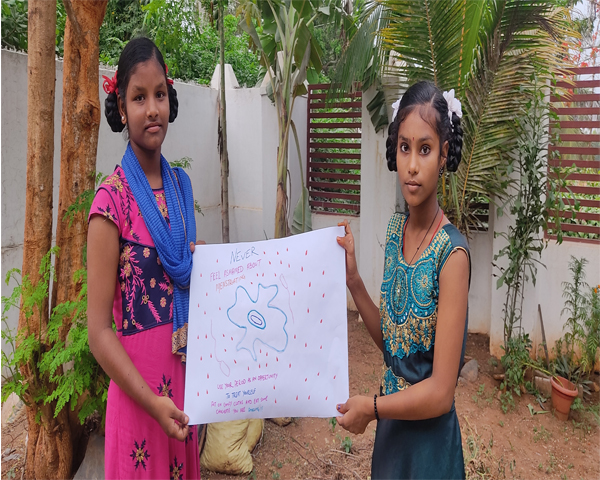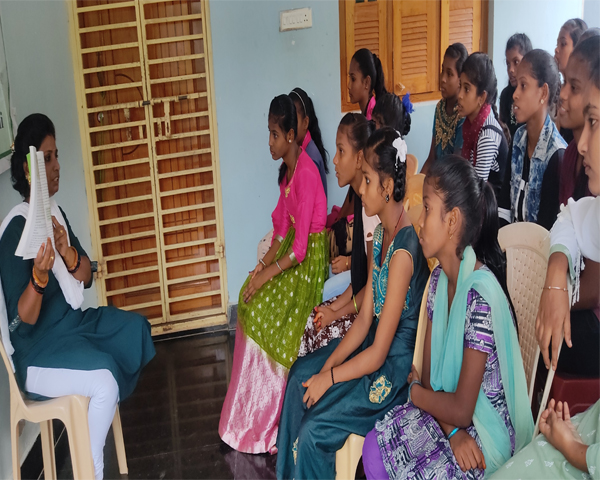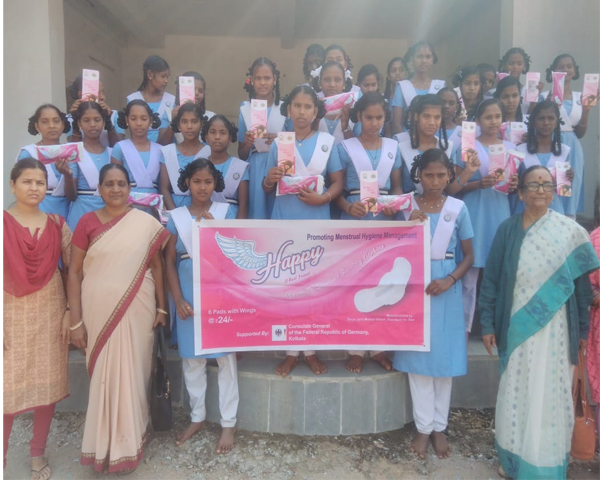Menstrual Hygiene Campaign
Breaking Taboos, Empowering Women: A Menstrual Hygiene Campaign in Odisha
In many communities, menstruation is shrouded in stigma and myths, leading to unhygienic practices that endanger women's health. In Odisha's fishing community, these taboos persist, with women forced into isolation during menstruation and using unclean methods of managing their periods.
To address this issue, Divya Jyoti Mahila Vikash launched a menstrual hygiene management program aimed at promoting awareness and access to proper menstrual hygiene practices among adolescents and young women in rural and coastal areas of Odisha.




Strategies Implemented:
- Information and Education: Developed materials debunking myths and promoting best practices in menstrual hygiene.
- Community Workshops: Conducted workshops for adolescent girls and young women to educate them about menstrual health and hygiene.
- Affordable Sanitary Napkins: Established a sanitary napkin unit to produce affordable and accessible menstrual products.
- Social Marketing: Utilized community-based social marketing to distribute sanitary napkins directly to doorsteps.
- Network Expansion: Collaborated with adolescent groups, schools, ASHA workers, and women's self-help groups for distribution and advocacy.
- Mass Awareness Campaigns: Participated in block-level and state-level menstrual hygiene campaigns for broader awareness and policy advocacy.
Achievements and Impact:
- Increased Awareness: Significant awareness was generated among village women and adolescent girls, empowering them to discuss menstruation openly and confidently.
- Adoption of Hygienic Practices: Women began adopting cleaner menstrual practices after learning about the health risks associated with unhygienic methods.
- Increased Sanitary Napkin Usage: There was a notable increase in the use of sanitary pads, particularly among young women, improving menstrual hygiene and reducing health risks.
- Economic Empowerment: The establishment of sanitary napkin units provided employment opportunities for local women, both in production and social marketing, contributing to economic empowerment at the grassroots level.
The success of this menstrual hygiene campaign demonstrates the transformative power of education, access to affordable products, and community engagement. By breaking taboos and empowering women with knowledge and resources, we pave the way for healthier, more empowered communities. Together, let's continue to dismantle barriers and promote menstrual hygiene as a fundamental human right.
Community Voice: S. Maheshwari, a student of class 8 said, "I learned a lot about menstrual hygiene and health in this program." "I admitted to using pads but could not dispose of them properly. Now thanks to our Didi's guidance I have learned that hygiene is very important for a healthy body.